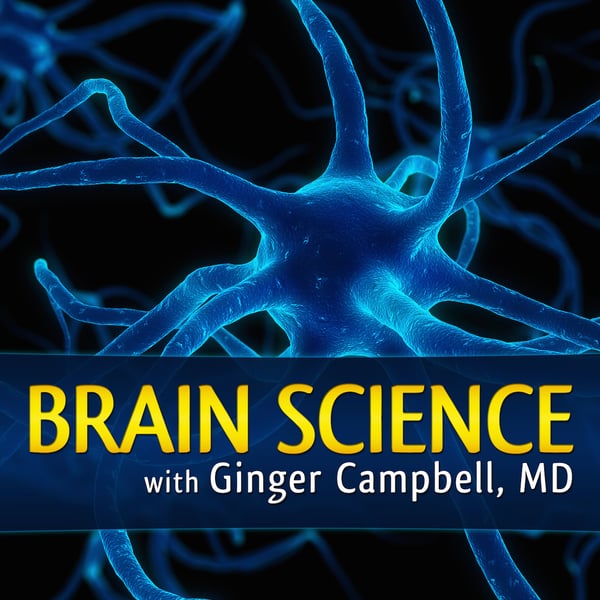BS 141 Rodrigo Quian Quiroga on Memory and Perception
Brain Science with Ginger Campbell, MD: Neuroscience for Everyone
Ginger Campbell, MD
4.8 • 896 Ratings
🗓️ 25 January 2018
⏱️ 52 minutes
🧾️ Download transcript
Summary
BS 141 is an interview with Rodrigo Quian Quiroga, author of The Forgetting Machine: Memory, Perception, and the "Jennifer Aniston Neuron." We explore how our brains construct both perception and memory, with an emphasis on meaning over exact detail. We also explore why this is important and how it makes humans very different from artificial intelligence.
For detailed show notes and episode transcripts please visit http://brainsciencepodcast.com.
Send feedback to [email protected]
This show relies on listener support. Please click here to learn how you can support the show.
Transcript
Click on a timestamp to play from that location
| 0:00.0 | Welcome to brain science, the show that explores how neuroscience is unraveling the mystery of how our brains make us human. |
| 0:12.0 | I'm your host Dr. Ginger Campbell and this is episode 141. |
| 0:17.0 | My guest today is Dr. Rodrigo Keon-Kiroga, author of The Forgetting Machine, Memory, Perception, and the Jennifer Aniston |
| 0:26.3 | Neuron. |
| 0:27.8 | Like many neuroscientists, Dr. Keeroga started his career as a physicist, but this allowed him to bring a unique set of |
| 0:36.2 | computational skills to his study of memory. In this interview we will talk about |
| 0:42.3 | his research and the discovery of what might more accurately |
| 0:46.5 | be called concept cells, rather than the better known term Jennifer Aniston Neurons. |
| 0:54.1 | I will be back after the interview |
| 0:56.1 | to review the key ideas and to share a few brief announcements. |
| 1:00.0 | As always, you will find complete show notes and episode transcripts on our website at brainscience podcast.com. |
| 1:07.5 | You can send me feedback at brainscience podcast at gmail.com, or if you prefer to leave audio feedback you can do this via the |
| 1:16.0 | Speak Pipe app or by going to Speak Pipe.com forward slash dock Artemis |
| 1:27.0 | Welcome to the show Rodrigo |
| 1:29.1 | Thanks. So at the beginning of the forgetting machine, you mentioned that you began your career as a physicist. |
| 1:37.0 | Will you tell us a little bit about yourself and how you ended up in neuroscience? |
| 1:42.0 | So, yeah, it's a long way. |
| 1:45.0 | So I started in physics and when I was a student I was fascinated by relativity, |
| 1:51.0 | time travels, I mean, I guess I like science fiction a lot. I like these ideas of getting |
| 1:56.8 | into a ship and traveling closer to the speed of light and then like going to the future or if it is possible to pass the speed of light and so on. |
| 2:06.0 | And then I was very interested in cosmology, but as I kept on progress in my career, I started to get less and less interesting into that because I thought |
| 2:16.0 | too far the touch to reality for my liking. |
... |
Transcript will be available on the free plan in -2623 days. Upgrade to see the full transcript now.
Disclaimer: The podcast and artwork embedded on this page are from Ginger Campbell, MD, and are the property of its owner and not affiliated with or endorsed by Tapesearch.
Generated transcripts are the property of Ginger Campbell, MD and are distributed freely under the Fair Use doctrine. Transcripts generated by Tapesearch are not guaranteed to be accurate.
Copyright © Tapesearch 2025.

